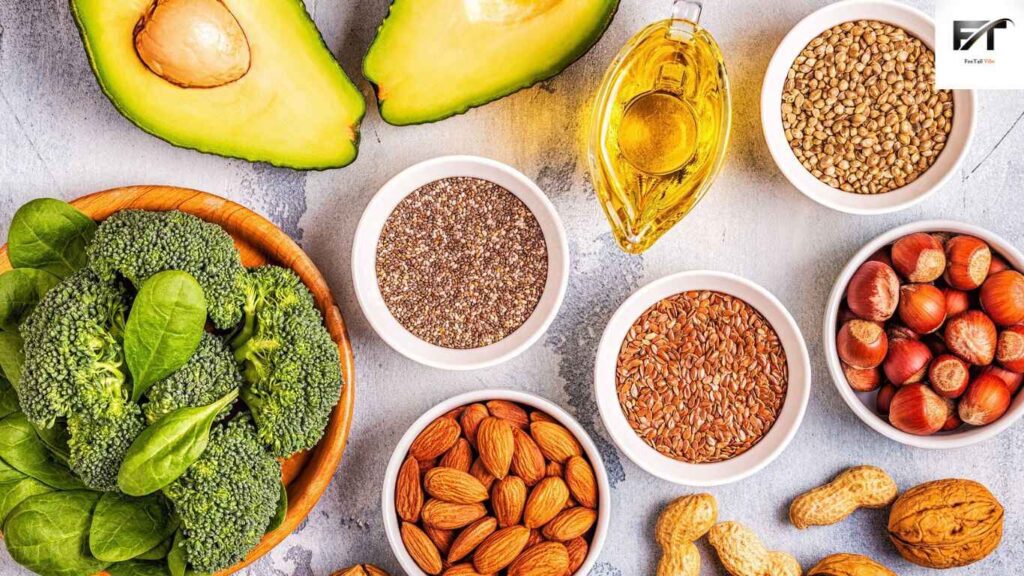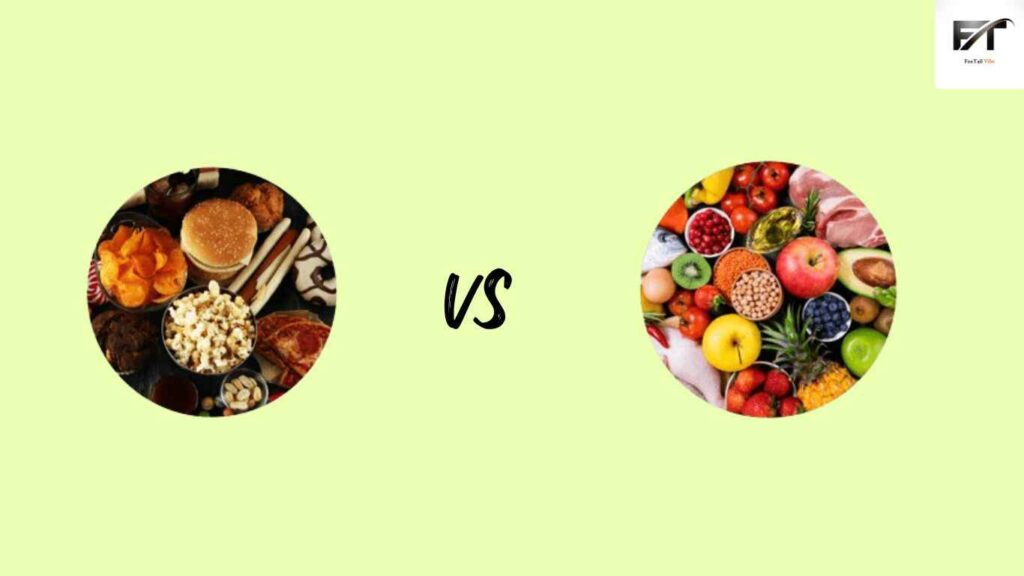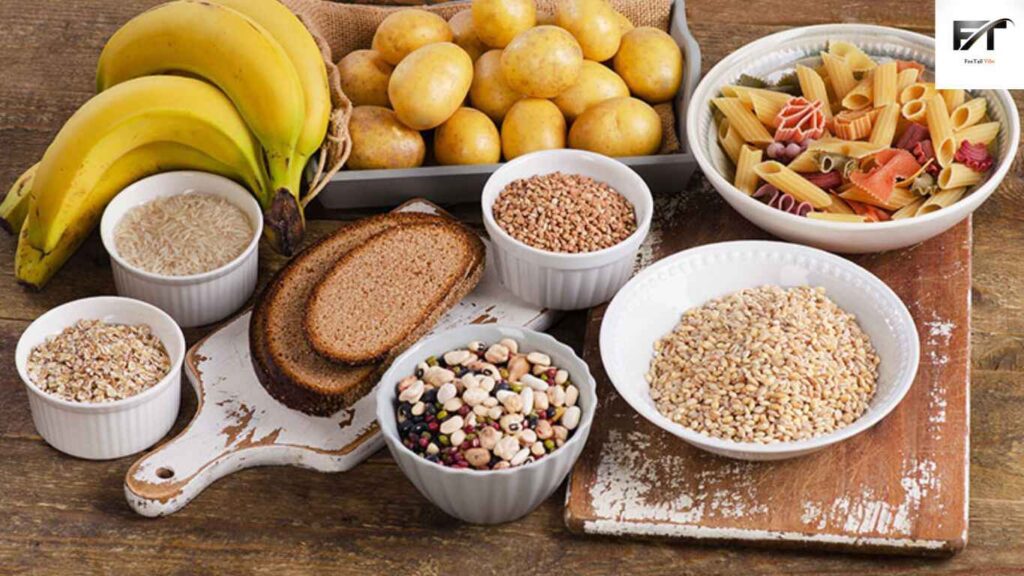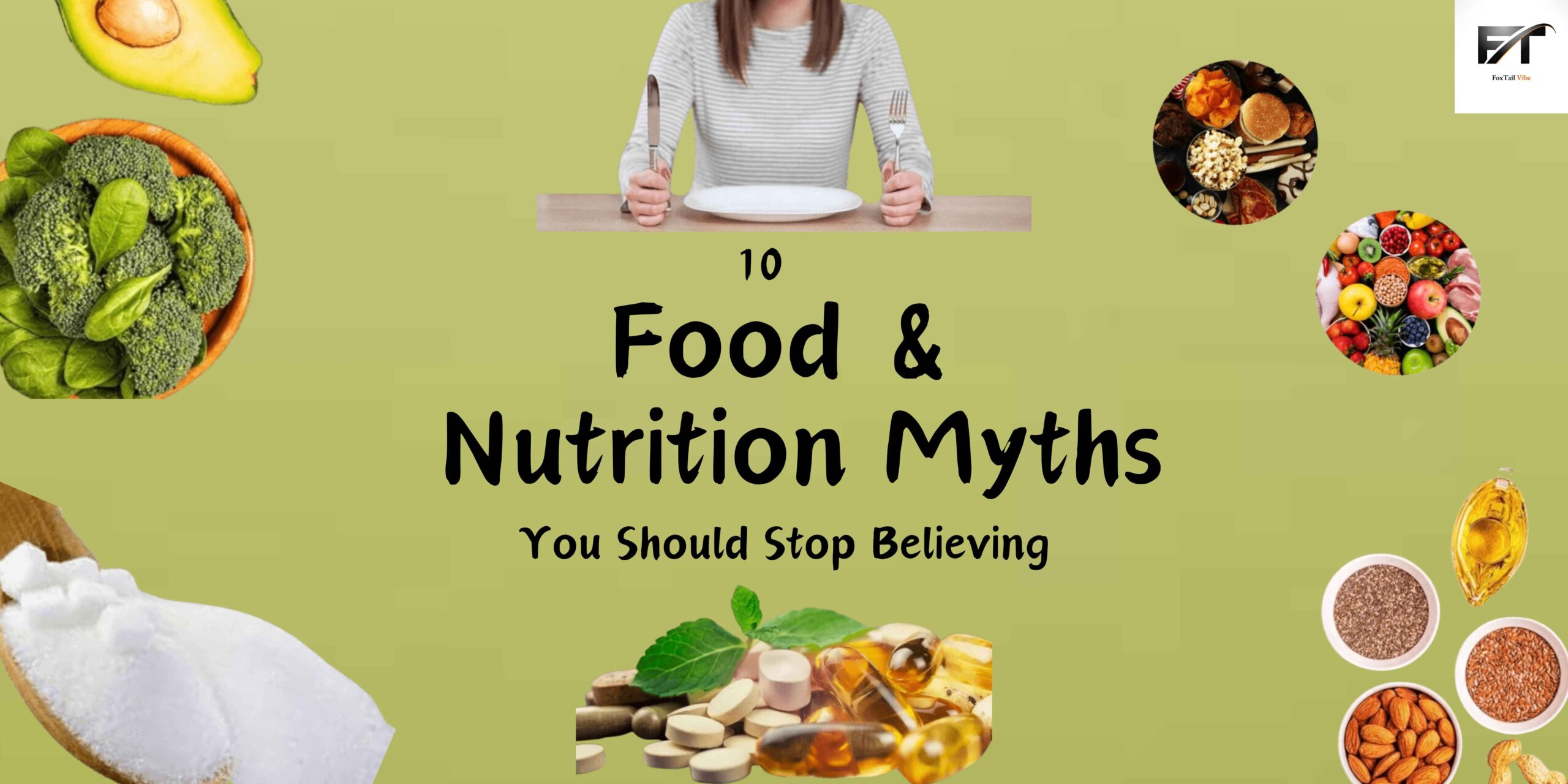Are you curious about food and nutrition but confused by all the conflicting information out there? Don’t worry, you’re not alone! In today’s world, we’re bombarded with myths and misconceptions about what we should eat and how it affects our health. But fear not – we’re here to help clear up the confusion and provide you with simple, straightforward facts about food and nutrition. Whether you’re interested in learning about the truth behind common misconceptions, understanding how to make healthier food choices, or simply looking for practical tips to improve your diet, you’ve come to the right place. So, grab a seat, get comfortable, and let’s start the journey to demystify the world of food and nutrition together!
Low-fat or fat-free foods are always healthier

This misconception stems from the belief that consuming less fat automatically translates to better health. However, it’s essential to recognize that not all fats are harmful. Unsaturated fats, such as those found in avocados, nuts, seeds, and olive oil, are beneficial for heart health and overall well-being. In contrast, some low-fat or fat-free products may contain added sugars, refined carbohydrates, or artificial additives to compensate for the reduced fat content, which can be detrimental to health when consumed excessively.
All calories are equal

While calories serve as a measure of energy, not all calories are metabolized or utilized the same way by the body. The concept of calorie quality considers factors such as nutrient density, fiber content, and satiety. For instance, foods rich in fiber, protein, and healthy fats tend to be more filling and provide sustained energy compared to foods high in refined sugars and carbohydrates, which can lead to blood sugar spikes and crashes.
Eating late at night causes weight gain

Weight gain is primarily influenced by the total amount of calories consumed versus calories expended over time, rather than the timing of meals. While late-night snacking may contribute to weight gain if it leads to excessive calorie intake, it’s the overall balance of calories throughout the day that matters most. It’s essential to focus on portion control, food choices, and maintaining a balanced diet regardless of the time of day.
Carbohydrates are bad for you

Carbohydrates are a vital source of energy for the body, particularly for fueling brain function and supporting physical activity. However, not all carbohydrates are created equal. Whole, unprocessed carbohydrates from sources like fruits, vegetables, legumes, and whole grains provide essential nutrients, fiber, and antioxidants that promote health. On the other hand, refined carbohydrates found in sugary snacks, white bread, and pastries lack fiber and essential nutrients and can contribute to weight gain and chronic diseases when consumed excessively.
Eating after exercise ruins the benefits of the workout

Consuming nutrients after exercise, particularly a combination of carbohydrates and protein, is crucial for replenishing glycogen stores, repairing muscle tissue, and promoting recovery. Contrary to the misconception that eating after exercise negates the benefits of the workout, refueling with a balanced post-workout meal or snack can enhance muscle recovery, support immune function, and optimize training adaptations. Including nutrient-rich foods like lean proteins, whole grains, fruits, and vegetables in post-exercise meals can help maximize the benefits of physical activity.
All protein sources are equally healthy

While protein is essential for muscle repair, immune function, and hormone synthesis, the quality of protein sources can vary significantly. Animal-based proteins like lean meats, poultry, fish, and dairy products provide high-quality protein with essential amino acids necessary for optimal health. However, processed meats and red meats have been associated with an increased risk of certain health conditions, including heart disease and cancer, when consumed in excess. Plant-based protein sources such as beans, lentils, tofu, and nuts are excellent alternatives that offer additional benefits like fiber and phytonutrients.
Skipping meals is an effective way to lose weight

Skipping meals can disrupt hunger and satiety cues, leading to overeating later in the day and potentially slowing down metabolism. Additionally, prolonged periods without food can cause dips in energy levels, impair concentration, and increase the likelihood of making unhealthy food choices. Instead of skipping meals, focusing on balanced, nutrient-dense meals and snacks spaced throughout the day can support weight management and overall health.
Eating frequent small meals boosts metabolism

The idea that eating frequent small meals throughout the day can boost metabolism and aid weight loss is a common misconception. While meal frequency can affect metabolism slightly, the overall impact on weight loss is minimal compared to factors like total calorie intake and expenditure. Some individuals may prefer frequent smaller meals for appetite control or to maintain energy levels, but meal timing and frequency should be personalized based on individual preferences and lifestyle factors.
All sugar substitutes are healthier than sugar

While sugar substitutes like stevia, erythritol, and monk fruit may offer fewer calories or have minimal impact on blood sugar levels, they are not inherently healthier than sugar. Some sugar substitutes, such as artificial sweeteners like aspartame and saccharin, have raised concerns about potential health risks when consumed in large quantities. Additionally, foods labeled as “sugar-free” or “diet” may still contain other unhealthy ingredients, such as artificial additives or excessive amounts of fat or salt. Moderation and choosing whole, minimally processed foods remain key principles for a healthy diet.
Supplements can replace a healthy diet

While dietary supplements can be beneficial for addressing specific nutrient deficiencies or supporting certain health goals, they cannot fully replicate the complex array of nutrients and bioactive compounds found in whole foods. Whole foods provide a synergistic mix of vitamins, minerals, antioxidants, fiber, and phytonutrients that work together to promote health and reduce the risk of chronic diseases. While supplements may have a role in certain situations, such as during pregnancy or for individuals with specific dietary restrictions, they should complement a balanced diet rather than serve as a substitute for it.
Also Read – 10 Best Superfoods For A Strong Immune System
